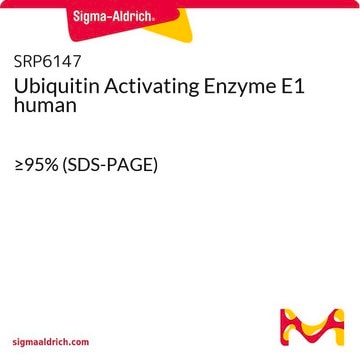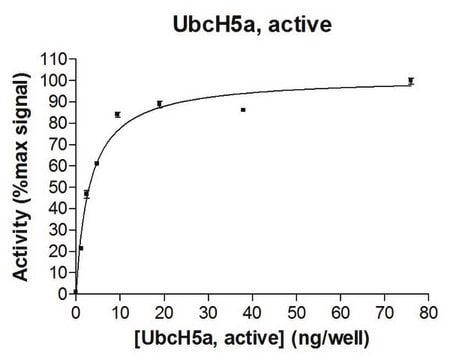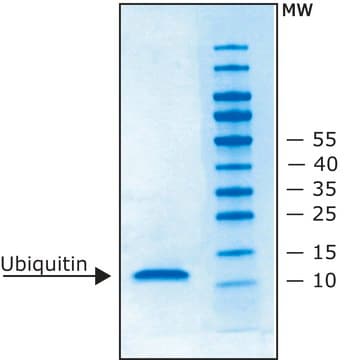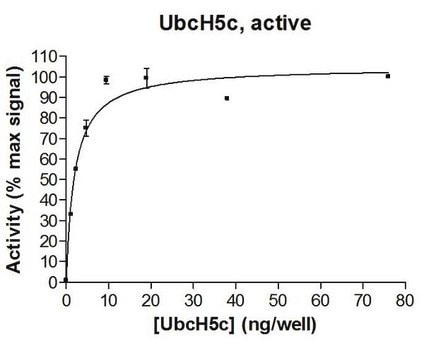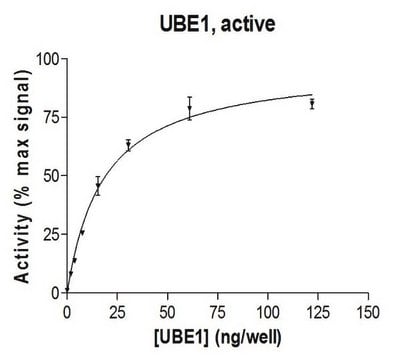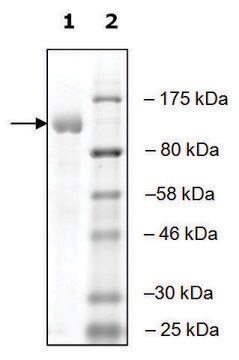U5633
Ubiquitin Activating Enzyme (E1) human
recombinant, expressed in baculovirus infected Sf21 cells
Sign Into View Organizational & Contract Pricing
All Photos(1)
About This Item
Recommended Products
biological source
human
Quality Level
recombinant
expressed in baculovirus infected Sf21 cells
Assay
≥95% (SDS-GE)
form
solution
UniProt accession no.
application(s)
cell analysis
shipped in
dry ice
storage temp.
−70°C
Gene Information
human ... UBA1(7317)
General description
Ubiquitin Activating Enzyme (E1) is responsible for the first step in ubiquitin-protein isopeptide bond formation. E1 catalyzes the activation of the C-terminal carboxyl group of ubiquitin by forming a high-energy thioester bond in an ATP-dependent manner.
Physical form
Solution in 50 mM HEPES, pH 8.0, 50 mM NaCl and 1mM TCEP
Other Notes
Manufactured for Sigma by Boston Biochem. Inc.
Storage Class Code
10 - Combustible liquids
WGK
WGK 3
Flash Point(F)
Not applicable
Flash Point(C)
Not applicable
Certificates of Analysis (COA)
Search for Certificates of Analysis (COA) by entering the products Lot/Batch Number. Lot and Batch Numbers can be found on a product’s label following the words ‘Lot’ or ‘Batch’.
Already Own This Product?
Find documentation for the products that you have recently purchased in the Document Library.
Chunmei Yang et al.
International journal of biological sciences, 16(6), 1059-1070 (2020-03-07)
Cullin 4A and 4B (CUL4A and 4B) function as oncogenes in colorectal cancer (CRC) cells. Both of them conservatively associate with DNA damage-binding protein 1 (DDB1) and DDB1-CUL4-associated factor 4 (DCAF4) to form Cullin-RING E3 ligases known as CRL4DCAF4, which
Our team of scientists has experience in all areas of research including Life Science, Material Science, Chemical Synthesis, Chromatography, Analytical and many others.
Contact Technical Service